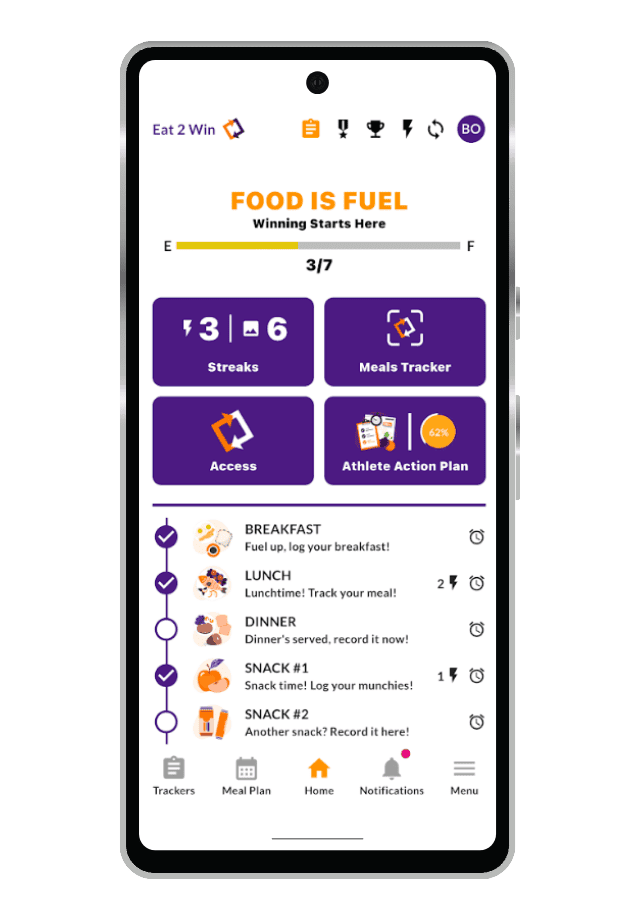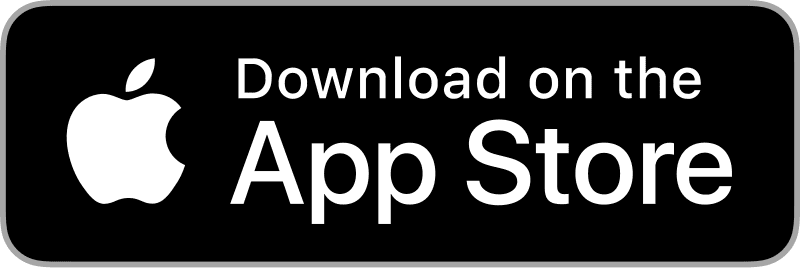Next Level Podcast with Host Tavis Piattoly, MS, RD, LD
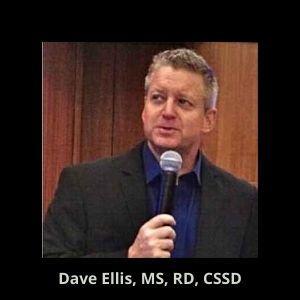
Dave Ellis, MS, RD, CSSD
Dedicated blogger and volunteer who helped found the NSCA's Nutrition Special Interest Group and most recently the Collegiate and Professional Sports Dietitians Assn. (CPSDA).
On the Next Level Podcast show, Sports Dietitian Tavis Piattoly MS, RD, LDN interviews Dave Ellis discuss careers in sports nutrition, the growth of the Sports Dietitian profession, and the founding of the Collegiate, Professional Sports Dietitians Association (CPSDA).
There are few who have more than three decades of work experience in the sports nutrition trenches, but that is just what we have with Dave Ellis. Dave is a Veteran Sports RD who is also a credentialed Strength Coach (CSCS) who logged 20 years in the collegiate ranks between the University of Nebraska and Wisconsin athletics before going into a private consulting practice back in 2001 that has him criss-crossing the US monthly with some of the biggest names in sports.
In addition to nutrition education, Dave is routinely brought into organizations to help assess the body composition and weight carrying capacity of athletes (frames) to more objectively set individual goals and designs training tables that stimulate a fueling mindset for athletes to help meet their body composition goals. Dave is very dedicated blogger and volunteer who helped found the NSCA's Nutrition Special Interest Group and most recently the Collegiate and Professional Sports Dietitians Assn. (CPSDA).
When Dave is not working with College, Olympic and Pro teams he is busy speaking on adulteration issues at Universities, Conferences and playing a scientific advisory role for several reputable firms on this global dilemma plaguing our food and dietary supply supply chains.
Dave is also a level 5 USA Hockey Coach and at age 51, senior hockey player. Says it keeps him young! How does a guy who was born in Louisiana end up play ice hockey?
In this podcast you will learn:
- His career choice and what made him want to become a Sports Dietitian
- His current schedule as a traveling RD to various Sports teams around the US.
- How he became the first Sports Dietitian in collegiate athletics and the start up of Nebraska’s nutrition program. His fortune of working with all time great Tom Obsourne.
- The growth of Sports RD’s in the college, professional, and military and special forces. What did it take to get there and why did it take so long.
- What the Sports Dietitian does in their full time role with a team, especially at the collegiate level.
- Some the concerns Dave has seen with Food and Supplement safety.
- Why some collegiate teams have hired 2 full-time Sports Dietitians on their staff and whether this trend will continue.
- What advantages of a university or team with a Sports Dietitian have over those who do not have one
- Why haven’t professional teams employed more full-time Sports Dietitians.
- Where does he see the field of Sports Dietetics in 10 years.
- How the group CPSDA (Collegiate, Professional Sports Dietitians Association) got started?
Podcast Transcript
0:00 Welcome by Tavis Piattoly
- Discuss the whole sports nutrition industry, how it has evolved and what great sports dietitians are doing today in the collegiate and professional ranks.
0:58 Introduction to Dave Ellis
- Sports dietitian for 20 years at the collegiate ranks with the University of Nebraska and Wisconsin athletics.
- Dedicated blogger and volunteer who helped found the NSCA's Nutrition Special Interest Group and most recently the Collegiate and Professional Sports Dietitians Assn. (CPSDA).
3:50 His career choice and what made him want to become a Sports Dietitian
- I grew up playing baseball and hockey and discovered resistance training in 9th grade, so I had a genuine curiosity for what the nutrition implications were for doing work or adaptation and speeding the rate of recovery.
- He realized that one size approach to nutrition, does not fit all.
5:00 His current schedule as a traveling RD to various Sports teams in the US.
- Manage the frame and body composition assessment from the time an athlete arrives until their eligibility is over.
- Set objective and realistic goals on an individual basis.
- Managing food and supplement supply at home and on the road.
- Mitigating cramps during and after competition.
- An emerging role is security for teams with the potential for adulteration making its way into the team setting through supplements or highly fortified foods.
- Design the training tables.
7:40 How he became the first Sports Dietitian in collegiate athletics and the start up of Nebraska’s nutrition program. His fortune of working with all time great Tom Obsourne.
- As a freshman in college at Nebraska, I was in a fraternity with a bunch of football players. I told them I was going to study exercise science and nutrition. They told me there was nothing going on with nutrition for players at that time. I met with the strength coach who told me to write him a letter explaining why I would be an asset. I talked about nutrition, not just strength, which is probably why I was employed as a student, knowing I was going to study nutrition.
- The football coach, Tom Osbourne, was WAY ahead of the curve and really understood the value of nutrition.
- I had a few lucky breaks! Being in the right place at the right time.
10:21 The growth of Sports RD’s in the college, professional, and military and special forces. What did it take to get there and why did it take so long.
- Sports dietitians that had success had to figure out how to sell the value of nutrition and advocate for the value that full time sports dietitians provide.
- CPSDA was formed to speed the process.
12:15 What the Sports Dietitian does in their full time role with a team, especially at the collegiate level.
- Medical Nutrition Therapy role
- Enhancing work capacity and speeding recovery and helping performance.
- Allow recruits and their families to come in and ask questions and discuss nutrition for the player. Families feel good about leaving their athlete where they feel they are nurtured.
14:16 Some concerns Dave has seen with Food and Supplement safety.
- Dietary supplement companies use non authentic ingredients of cheaper value to improve their bottom line.
- Advertising that a natural ingredient has a big kick. Instead of using an expensive natural ingredient with a low kick, they use an active pharmaceutical ingredient and build products.
- Upstream quality assurance of verification and safety of ingredients or downstream finished product testing to ensure the finished product hasn’t been adulterated in the manufacturing process.
- Dietitians take on this role of quality assurance.
16:47 Why some collegiate teams have hired 2 full-time Sports Dietitians on their staff and whether this trend will continue.
- The high revenue sports stimulate the demand for a full-time sports dietitian, but consume all their time, so then you’re left with about 20% of energy left to service another 18 sports in the athletic department. Too much going on for one sports dietitian.
- I believe the trend of hiring 2 full-time sports dietitians will continue.
18:38 What advantages of a university or team with a Sports Dietitian have over those who do not have one.
- Sports RD’s are in the recovery business.
- Advocate for the importance of sleep for recovery.
- Hopefully convince athletes of the negative impact that drug and alcohol has on recovery and lifestyle.
20:45 Why haven’t professional teams employed more full-time Sports Dietitians.
- Small head count sports may not be able to rationalize a full-time sports dietitian.
- These RD’s are probably a better fit for the small head count sports: strength RD, sports medicine RD, psyche RD, administrative RD, food service RD, chef RD, etc. They have daily functions and aren’t just waiting for an opportunity to provide nutrition education to athletes.
- If an RD can show skills around managing food supply in the pro setting, that’s huge! Along with all the other assets an RD brings to the table, it's then easier to rationalize a full-time sports dietitian.
- Other professionals (sports medicine, strength and ops) have been performing nutrition related responsibilities and often do not want to give them up because they feel that they won’t be as important to the team or organization.
23:40 Where does he see the field of Sports Dietetics in 10 years.
- Trending towards more than one full-timer in the collegiate ranks.
- As more high performance directors are brought in to orchestrate what medicine, strength and nutrition are doing, the things that really impact performance, we'll see directors doing more of their own hiring, and creating a real team for sports services.
- As the high performance model moves in, we’ll see nutrition continue to proliferate.
26:56 How the group CPSDA (Collegiate, Professional Sports Dietitians Association) got started?
- A group of full-time college folks sitting in a hallway at a SCAN meeting.
- After realizing SCAN wasn’t going to move quickly enough for their agenda, they decided to form their own group.
- Wanted to share experience and knowledge to help groom future sports dietitians.
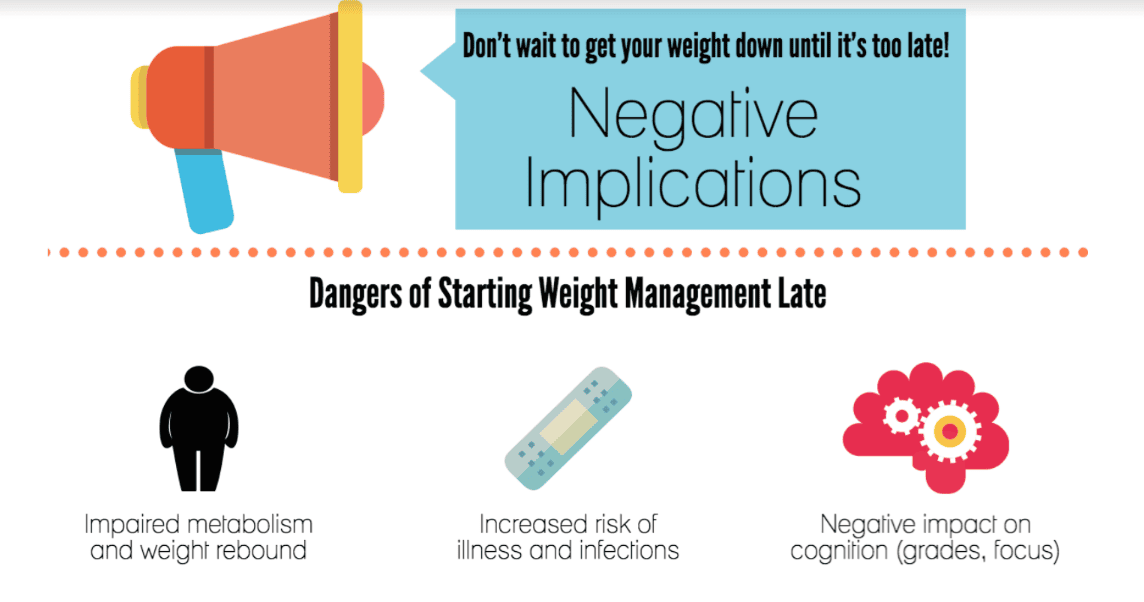
Eat 2 Win Nutrition App
Fuel the Champion Within
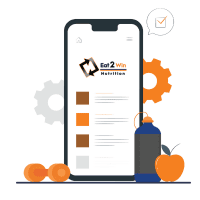
Trackers
Stay on target with cutting-edge trackers that monitor every step of your journey, ensuring you never miss a beat.

Meal Plan Guides
Simplify your nutrition with easy-to-follow, personalized meal plans that fuel your performance.
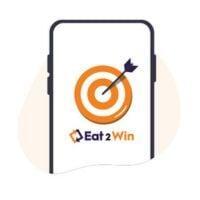
Gamification
Stay motivated and engaged by earning rewards and climbing leaderboards as you hit your fitness and nutrition goals.

Access a Sports Dietitian
Get expert guidance and personalized support from a certified Sports Dietitian whenever you need it.
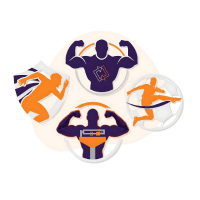
Personalized Programs
Unlock your full potential with personalized programs meticulously crafted to match your unique lifestyle and fitness aspirations.

